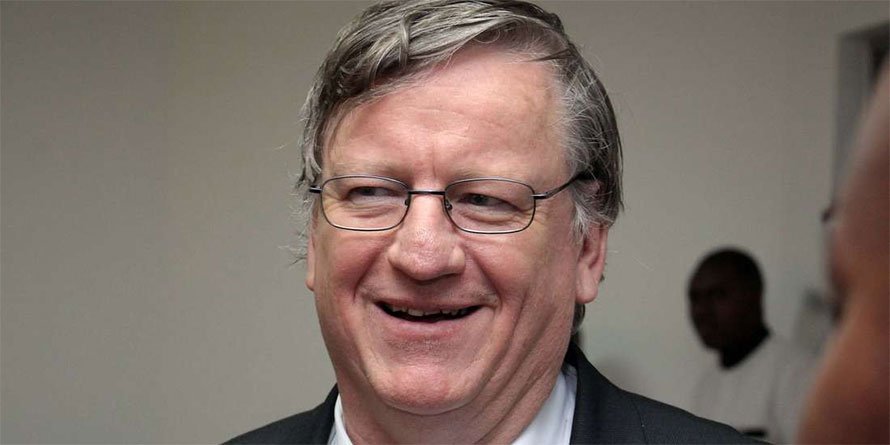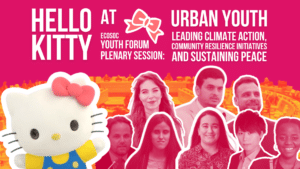By RAPHAEL OBONYO
Besides leading the global war against the Covid-19 pandemic, the World Health Organisation (WHO) is providing support to the national response in different countries.
In Kenya, the organisation is represented on the National Public Emergency Steering Committee tasked with coordinating the country’s response to the pandemic and works closely with the National Emergency Response Committee on Coronavirus set up by President Uhuru Kenyatta in February.
The WHO country representative, Dr Rudi Eggers, spoke to the Business Daily on Kenya’s hits and misses so far, and what it can do better.
HOW IS THE WHO HELPING KENYA TO CONTAIN THE SPREAD OF CORONAVIRUS AND TO DEAL WITH THE SECONDARY IMPACT OF THE PANDEMIC?
The WHO has been a partner in Kenya’s efforts to respond to coronavirus. In February, the WHO announced that Kenya was to be among countries to be provided with reagent kits so as to ensure rapid detection of the deadly coronavirus. The news came as health officials confirmed that three people were quarantined after showing symptoms consistent with the infection.
Also, the WHO is working with the National Emergency Response Committee on Coronavirus that President Uhuru Kenyatta formed in February as part of measures to contain the pandemic. The WHO Representative to Kenya is a key member of the National Public Emergency Steering Committee chaired by the Principal Secretary of Health.
The committee is tasked with coordinating Kenya’s response, enhancing surveillance at Kenya’s ports of entry, coordinating supply of testing kits and critical medical products, including masks and protective gear. The team co-ordinates the preparation of national, county and private isolation and treatment facilities, as well as marshals local and international human resources.
More importantly, the team formulates, enforces and review processes and requirements for entry into Kenya of any persons suspected to have travelled to a coronavirus-infested area. In January, the WHO was working with Kenya to enhance preparedness following two important global meetings.
At the time, the WHO Director-General, Dr Tedros Adhanom Ghebreyesus, advised governments to do all they could to prepare for an eventual outbreak and respond rapidly to contain and isolate these initial cases: time is critical now. The situation has since evolved and a lot has happened. In Kenya, WHO has deployed about 13 staff inside the structures of the Ministry of Health, both at the national and county levels. Additional staff is being seconded to some of the most affected counties, like Mombasa.
When Kenya announced the country’s first case of Covid-19, the Kenyan government shifted swiftly into response mode. With the help of the WHO, the government had already created four rapid response teams in the Ministry of Health’s Emergency Operations Centre, set up a hotline, and established a coronavirus isolation and treatment unit at Kenyatta National Referral Hospital.

WHAT IS WHO’S STRATEGY FOR COMBAT Covid- 19 IN KENYA?
Personal Hygiene: Regularly and thoroughly clean your hands with an alcohol-based hand rub or wash them with soap and water. Why? Washing your hands with soap and water or using alcohol-based hand rub kills viruses that may be on your hands.
Social distancing: Maintain at least one metre (3 feet) distance between yourself and others. Why? When someone coughs, sneezes, or speaks they spray small liquid droplets from their nose or mouth which may contain virus. If you are too close, you can breathe in the droplets, including the Covid-19 virus if the person has the disease.
Testing: Two kinds of tests are available for Covid-19: viral tests and antibody tests. A viral test tells you if you have a current infection. An antibody test tells you if you had a previous infection.
Contact tracing: it involves identifying anyone a confirmed case might have come into contact with from two days prior to the onset of symptoms to up to 14 days afterwards. Tracing the contact proved difficult at first. Thanks to combined efforts of the Rapid Response Team, a telecommunications company, and the national security services, it is now possible to trace the contact and ensure they were isolated for testing.
WHAT CAN KENYA DO BETTER TO DEFEAT Covid-19?
Kenya has done many right things and quickly. Kenya was among the first countries in Africa to impose restrictions on gatherings. One of the areas that we have been concerned about is misinformation about quarantine where it was perceived to be a punitive measure. We believe that when people break the law, they should not be quarantined, they should be detained, and that is not quarantine. Let us not forget that quarantine is the lifeline to addressing the spread of coronavirus. It should not be used or seen as punishment.
Testing is a big issue – no country can be blamed for lack of testing. We need to get this done, and done properly.
Once we get high numbers, thousands, and we hope we don’t, government facilities will be needed especially for people who come from densely populated areas. However, there are cases especially for people in less populated areas that can be treated at home.
The virus does not discriminate. We need to be careful not to make this a political issue. Please let us follow government advice, ensure personal hygiene, wear a mask, protect yourself and people around you.
Also remember, that testing positive to Covid19 is not a death sentence. Over 96-97 percent of people who test positive to Covid-19 recover.
IS THERE HOPE OF A VACCINE?
There is hope. Companies and governments are making different attempts to develop treatments and, eventually, a vaccine for the virus, which first surfaced in China in late 2019. There is a race for invention of a vaccine that can provide immunity to Covid-19, the disease caused by the novel coronavirus.
However, at the moment we have little insight on the disease especially when it comes to immunity. People who test positive and survive infection cannot be certain they will not be hit again by the coronavirus.
That is why the WHO has issued warning against “immunity passports” for recovered patients, seen as a possible tool for countries preparing to re-open their economies. The WHO opposes such “passports” because recovery from the virus might not protect a person from reinfection.
There is currently no evidence that people who have recovered from Covid-19 and have antibodies are protected from a second infection.
YOU HAVE BEEN AT THE HELM OF WHO IN KENYA FOR OVER THREE YEARS. WHAT ARE SOME OF THE ORGANISATION’S KEY ACHIEVEMENTS?
At the moment, the WHO is working with the government through the Ministry of Health in the endeavours towards attaining Universal Health Coverage (UHC).
We are walking and working with the government to bring to reality what President Kenyatta declared in 2017 when he announced that health care was to be one of the four pillars of his plan for socio-economic growth, alongside food security, affordable housing and manufacturing. The President pledged to make quality health care services available to all households.
When Dr Tedros visited the country and held meetings with the President in January 2018 he expressed the WHO’s commitment to fully support the country as it strives towards attaining UHC.
The WHO was instrumental in the implementation of UHC since the national launch of the pilots in Kisumu in December 13. Kisumu is one of the counties the government chose to pilot UHC alongside Machakos, Isiolo and Nyeri. The WHO has worked with Kenya to attain maternal and tetanus elimination status. Also, Kenya has adopted malaria vaccine supported by the WHO. Also, the WHO continues to work with Kenya in a sustained effort to eradicate polio.
This article was first published on the Business Daily Africa

